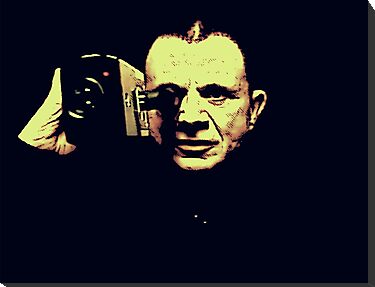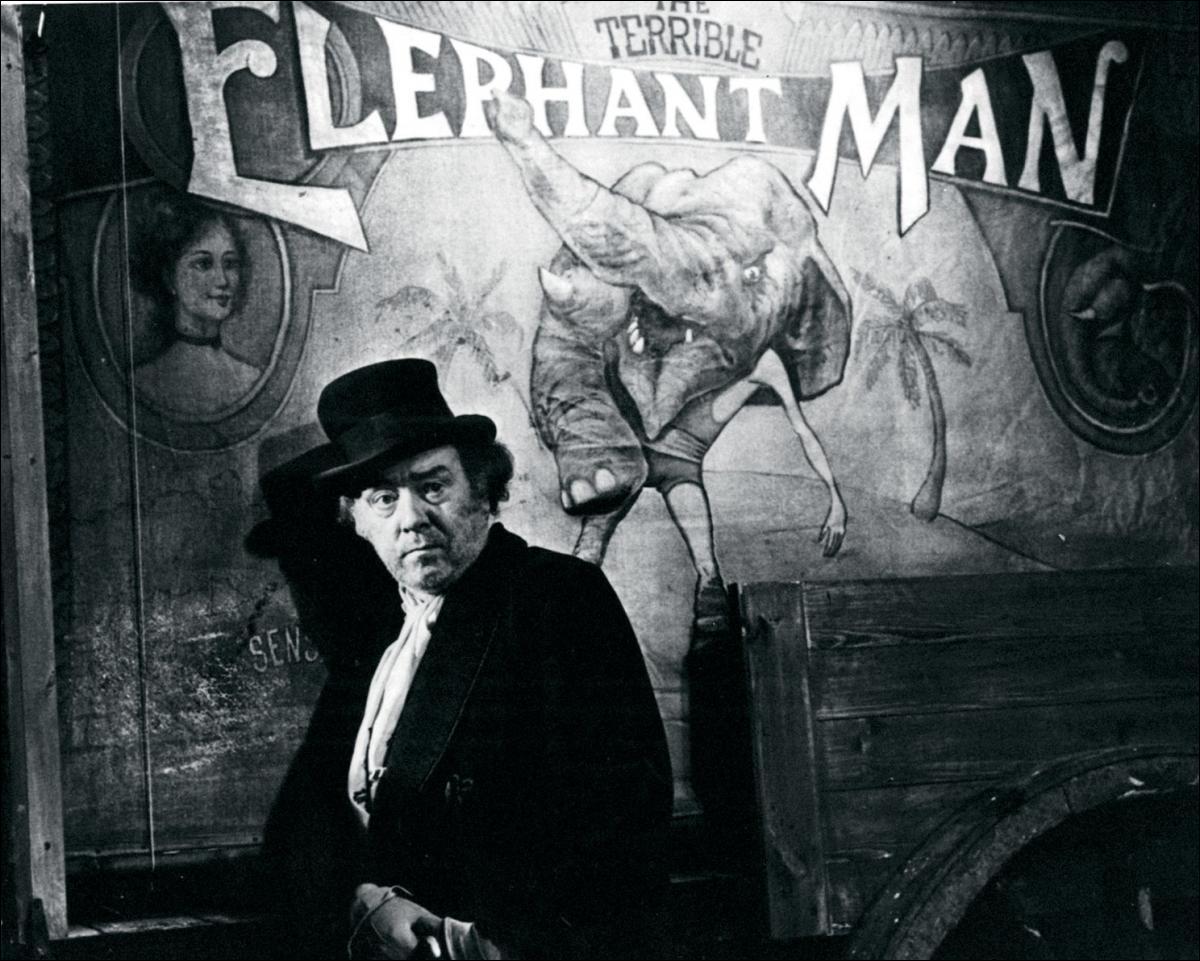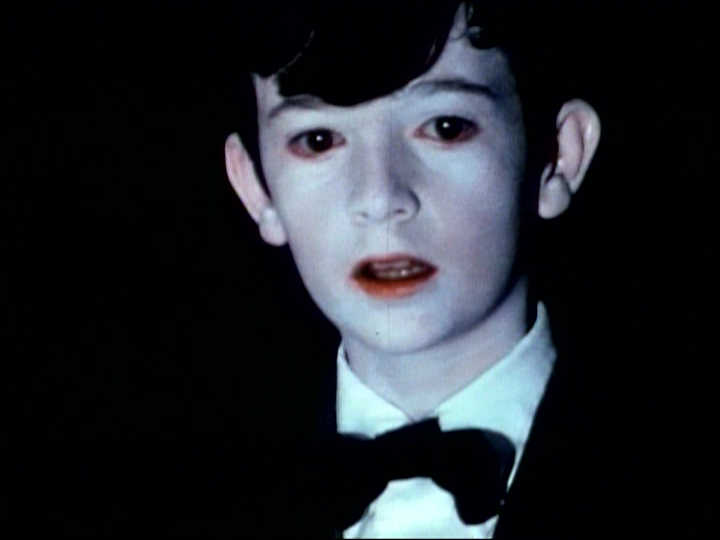“David Lynch is the renaissance men of the modern American film, acknowledged and widely known as a scenarist and director, as well as a TV producer, a photographer, caricaturist, compositor and graphic artist”. With this sentence, the biography text on Lynch starts – at the encyclopedia sight AMG, as the most adequate way to introduce the author’s portrait of – maybe one the most significant contemporary film authors – David Lynch. The man, who managed with his films to build so specific art-worlds, the worlds that attract and repel, spook and provoke and inspire at the same time, and that penetrate into the sub-conscience of the recipient in such an interesting ways…
“Eagle Scout Missoula Montanae” – are the words with which Lynch describes himself in the 1990 press releases. His biography would be something like this:
“Eagle Scout Missoula Montanae” – are the words with which Lynch describes himself in the 1990 press releases. His biography would be something like this:

He’s born as David Keith Lynch on 20th of January 1946, in Missoula, Montana, USA. His early youth passes in places Idaho, Washington, North Carolina. In 1961, together with his family he moves from the Pacific Northwest into Alexandria, Virginia. In 1965, together with his friend Jack Fysk, Lynch leaves for Europe, with a notion to study at the well-known expressionistic painter Oscar Kokoshka. They visit Paris and Athens, but only after 15 days they return to America. On the very beginning of 1966 he moves to Philadelphia and enrolls at the Pennsylvania Academy of Fine Arts. Lynch gets his diploma in ‘67, and the next two years in his biography are marked with joint & single exhibitions in Philadelphia’s art-galleries.

His works were exhibited at few more places: at the joint exhibition at the International Art Fair in Washington, 1979, a single exhibition at the James Corcoran Gallery in Los Angeles and at the so called “Californian Exhibition” at the “Roger La Pelle” Gallery in Philadelphia, Pennsylvania 1987, a single exhibition at the “Leo Castelli” Gallery in New York 1989, at the Contemporary Art Museum „Touku“ in Tokyo ‘91, joint exhibition of photo-materials at the Contemporary Art Center in Cincinnati, together with Denis Hopper, John Waters and Tim Burton in ‘97.
Beside painting and photography art, Lynch did work on furniture design, and together with his permanent co-worker, the composer Angelo Badalamenti, produced and wrote the verses for the albums of Julie Cruse “Floating in the Night” and “The Voice of Love”, and he’s also a co-producer of her version of “Summer Kisses, Winter Tears” for the soundtrack of the Wenders’ “Till the End of the World”. In his creative biography there are the video-clips for the singles “Wicked Game” by Chris Isaac and “Unfinished Sympathy” by Massive Attack. He directed numerous advertising videos, and in the role of a producer appears with the documentary “American Chronicles” and the feature film “Nadja” by Michael Almereida (“Hamlet”), where he even shortly appears in. All this, finally, brings us to his AUTHOR’S FEATURE FILM FILMOGRAPHY, by which he’s best known.


Lynch begins to work on the script for his first long-length project “Eraserhead” in 1971. The next year he starts with its production and the premiere of this film will happen five years later, at 19th of March 1977, at Filmex L.A. A cult black & white psychosis: “Bexevi I saw Eraserhead”. “A sur-realistic nightmare appeared as an expression of the author’s fear from fatherhood” (AMG – again). Film for which, Stanley Kubrick, allegedly said, that he would like to be able to film it itself. With this project Lynch starts the collaboration with the D.O.P. Frederick Elms, the sound designer Alan Splat and the actor Jack Nance, his regular co-workers in the future, as well.
In 1978 he signs with Mell Brooks and Brooksfilm, and starts with the preparing of the film “Elephant Man“, a touching story for John Merick, the man sick with this rare and heavy deformation disease of the skin. This “heavy” story placed in the Lynch’s Victorian period brings him his first Oscar nomination for best directing, and the film gets, in whole, 7 Oscar nominations.


His next project was the controversial cinema adaptation of the SF epos by Frank Herbert – “Dune”, a film produced under the Dino de Laurentis label, a person “responsible” for the production of “Barbarela” and “Flash Gordon“. That exact stylized atmosphere conveys in this film also, a film that certainly isn’t for anyone’s taste (even Lynch himself redraw from the project after its re-cut), but the visual extravagance of “Dune”, by the way, is, undoubtedly, an inevitable work for the Lynch’s visions lovers and for the SF lovers in general. And what’s also important about this film: here starts the collaboration with Kyle MacLachlan, „his cinematography alter ego“. After this commercial and review failure with “Dune”, Lynch makes his comeback in 1986 with the “Blue Velvet”, again produced for the Laurentis’ label, but this
time, with a quite smaller budget.


His collaboration with Kyle MacLachlan continues, but this time, instead in some 10 thousand and some year somewhere in the Universe, the story is placed in the 20th century on Earth, somewhere in the heart of the white America. And what’s to be found there, under its surface? And why and how Denis Hopper
manages to be so convincing in the role of a psychopath? How to comprehend the end of the film? And who killed Lora Palmer? Well, this question will become really actual in 1990, when the first season of “Twin Peaks” will be emitted on the TV screens, becoming a global TV phenomenon, a TV-soap as none before. Kyle MacLachlan and Jack Nance, once again. Sherillyn Fenn and Lara Flyn Boyle for the first time. Fantastic music title, sampled from Moby from his great hit “Go”… The same year, David Lynch gets the “Golden Palm” in Kan for the hellish road-film “Wild at Heart” with Nicholas Cage, Laura Dern and the ingenious Willem Dafoe as Bobby Peru… On HBO in 1992, the three-episode serial “The Hotel Room” will be shown (Lynch directed the 1st and the 3rd episode). The same year, the serial “Twin Peaks” will have its prequel in a form of feature film named as “Twin Peaks: Fire, Walk With Me” (in the film also appears David Bowie).


After the five-year abstinence from the feature film director’s chair, not taking in account his contribution in the project “Lumiere and Company”, in 1997 he appears with another ultimate head-fuck from his psychotic workshop, the film “The Lost Highway”, adopted by the Barrie Guilford novel, with the excellent soundtrack where, by the regular Angelo Badalamenti, there also found a place NIN, Bowie, Smashing Pumpkins, Barry Adamson, Rammstein. Kyle MacLachlan is absent, but here we get Bill Pullman in the role so different than that in “Independence Day”, and in a short cameo role there appears even Marilyn Manson himself. In 1999, his “Lynch-Non-Lynch” film “Straight Story” gets the European Film Award, and two years later, at the last year’s Kan Film Festival, together with Joel Cohen, he gets the Best Directing Award for the phenomenal “Mulholland Drive”.
And INSTEAD OF A STANDARD CONCLUSION, here we give you some of the Lynch’s thoughts about the film music and about the film in general:
.jpg)
.jpg)
„The music is of a real importance for me since the period when I was a little kid, and it’s really amazing how much we know without being aware of that. For instance, I’m not some kind of a scholar in music, but when one gets into it, he discovers how much he actually knows about the form”… Or what he thinks about the films: “I like to make films because I love to travel in different worlds. I like to be lost in some kind of different worlds. My films are like film paintings – dynamic moving portraits captured on the celluloid. Among the directors I find inspiring, there are: Billy Wilder, Federiko Fellini, Ingmar Bergman, John Ford, Orson Wells, Werner Herzog, Stanley Kubrick, Alfred Hitchcock, Frances Ford Copolla and Ernst Lubic”.

David Lynch, personal resume:
Awards and Nominations
For the “Elephant Man”:
1980 – Oscar nomination for Best Directing and Best Adapted Scenario
1980 – the Best Film Award at the British Film Awards
1981 – the Best Film Award by the French Film Academy
1980 – Oscar nomination for Best Directing and Best Adapted Scenario
1980 – the Best Film Award at the British Film Awards
1981 – the Best Film Award by the French Film Academy
For the “Blue Velvet”
1986 – nominated by the Film Academy for Best Directing
1986 – nominated by New York Critics for Best Film and Best Directing
1987 – nominated for the “Golden Globe” Award in the category for Best Scenario
1986 – nominated by the Film Academy for Best Directing
1986 – nominated by New York Critics for Best Film and Best Directing
1987 – nominated for the “Golden Globe” Award in the category for Best Scenario

For the “Mulholland Drive”
2001 – nominated for best scenario and directing at the “Golden Globe” Awards
2002 – another Oscar nomination for directing
2002 – another Oscar nomination for directing
By Jane Altiparmakov
